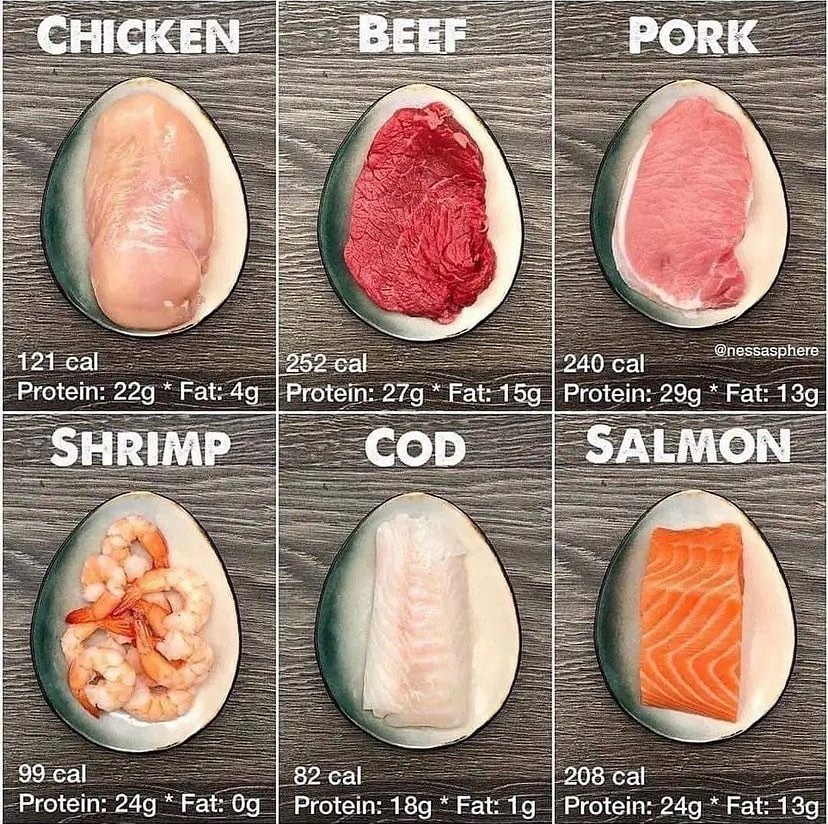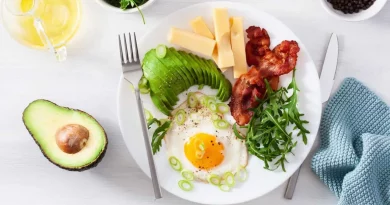Nutrition and Food
“Nutrition is the process of taking in nutrients from the foods you eat.”
Types of nutrition
• Carbohydrates –
Carbohydrates are energy-providing nutrients and our main source of energy. They are easily digested and broken down into glucose, which the body uses to perform its numerous functions. The body receives 4 calories per 1 gram of carbohydrates consumed.
Carbohydrates are grouped into
simple carbohydrates (sugar), complex carbohydrates (fiber) and starch.
and based on Glycemic Index its grouped in to Low, Moderate and High
Glycemic Index showing the measurement of how high and how quickly blood suger levels change after eating carbohydrates. The higher the Glycemic Index, the higher the rise in blood sugar and the longer it takes to return to normal. For a healthy diet, it is best to focus on foods with a low Glycemic Index and it’s also depends on the physical work. Foods with a high Glycemic Index have been linked to elevated risks of heart disease and diabetes.
Carbohydrates requirement in our diet:
Carbohydrates should account for 45% – 65% of the calories in your diet, which is roughly 225 g – 325 g of carbohydrates for someone on a 2000-calories diet.
Healthy and unhealthy sources of carbohydrates in our food:
The healthiest sources of carbohydrates are unprocessed or minimally processed whole grains, vegetables, fruits and beans.
Unhealthier sources of carbohydrates include white bread, pastries, sodas, and other highly processed or refined foods. These items contribute to weight gain, interfere with weight loss, and promote diabetes and heart disease.
• Fats –
Fats are an essential part of the diet. One of the source of energy and important in relation to fat soluble vitamins.
1-gram Fat provides 37 kJ (9 kcal) energy. Foods that contain a lot of fat provide a lot of energy.
There are different types of fat including saturated fats and unsaturated fats.
Saturated fats are normally solid at room temperature, while unsaturated fats are liquid.
A high intake of saturated or trans fatty acids can have adverse effects on health.
Foods having polyunsaturated fats are essential for good health and overall health. Which is found in seafood such as tuna, mackerel and salmon, as well as nuts and canola and flax seed oils.
• Fiber –
The fibrous indigestible portion of our diet essential to health of the digestive system.
Fiber is one type of carbohydrate. Though most carbohydrates are broken down into sugar molecules, fiber cannot be broken down into sugar molecules, and instead it passes through the body undigested. Fiber helps regulate the body’s use of sugars, helping to keep hunger and blood sugar in check.
Fiber should account for at least 5% of your daily caloric intake. Children and adults need at least 20 to 30 grams of fiber per day for good health consuming 2,000 calories daily. Fiber comes in two varieties, both beneficial for health:
• Soluble fiber, which dissolves in water, can help lower glucose levels as well as help lower blood cholesterol.
• Insoluble fiber, which does not dissolve in water, can help food move through your digestive system, promoting regularity and helping prevent constipation.
• Minerals – Minerals are inorganic substances and essential nutrients that are needed in small amounts to keep you healthy. Minerals do not give you energy or calories but its involved and help in the formation of bones and teeth. People have different requirements, according to their age, sex, physiological state (e.g. pregnancy) and sometimes their state of health. Some minerals are needed in larger amounts than others, e.g. calcium, phosphorus, magnesium, sodium, potassium and chloride. Others are required in smaller quantities and are sometimes called trace minerals, e.g. iron, zinc, iodine, fluoride, selenium and copper.
Protein – Proteins are made by combining smaller amino acids. Proteins in the diet are known as macronutrients, and contribute energy (calories) to the body. There are 20 amino acidsused to build proteins.
Since All cells and tissues contain protein therefore its essential for growth and repair of muscle and other body tissues. Hair and nails are mostly made of protein. You also use protein to make enzymes, hormones, and other body chemicals. Protein is an important building block of bones, muscles, cartilage, skin, and blood.
Each gram of protein contains 4 calories. Reference Nutrient Intake (RNI) is set at 0.75g of protein per kilogram bodyweight per day for adults.
Sources of protein include meat products (hamburger, fish, chicken), dairy products (cheese, milk, yogurt, cottage cheese), eggs, tofu, lentils, and soy milk.
Vitamins – Vitamins are organic compounds that are essential in very small amounts for supporting normal physiologic function. Vitamins don’t give you calories or energy but do help you stay healthy.
There are two types of vitamins: water soluble and fat soluble.
Water soluble vitamins include vitamins B1, B2, B3, B6, B12, vitamin C, biotin and folate. They are not stored in large amounts in the body, and any extra is lost through your urine.
Water and fat-soluble vitamins play important roles in many chemical processes in the body. Fat soluble vitamins include vitamins A, D, E and K and they can be stored in your body. High amounts of fat soluble vitamins are not recommended, as these can cause health problems.
• Water – Water contains zero calories and is not a source of fat, protein or carbohydrates. Although pure water does not contain any additional nutrients. Water is a nutrient all its own, helping every cell in your body function properly as a vehicle for carrying other nutrients because 60 percent of the human body is composed of water.
• Water regulates body fluids
• Water helps with digestion and makes you feel full (so you eat less)
• Water prevents muscle fatigue and dehydration
• Water supports the kidney’s process of ridding the body of toxins
To meet Institute of Medicine water-intake recommendations, men should drink about 13 cups of non-alcoholic fluids per day, while women should drink about 9 cups
Source by Ravi Verma


